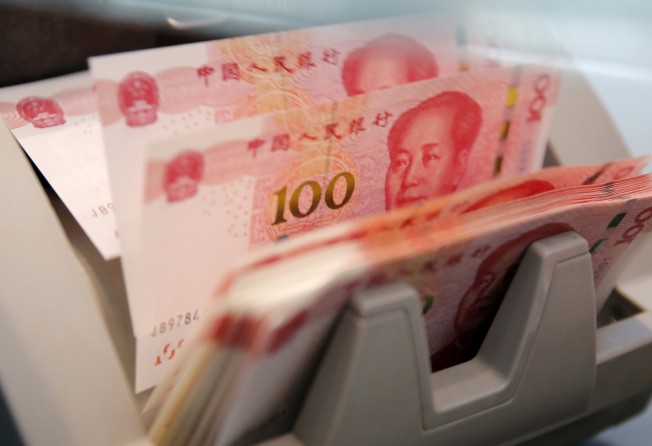Beijing has a funding relief plan for distressed private firms but will banks follow?
- New government proposals expected to have limited impact on cash flowing to sector, industry insiders say
- Loan officers ‘unlikely to risk’ lending to most private firms even with personal exemptions

China’s top financial regulators have been working around the clock to try to ease funding difficulties for private companies, as Beijing turns to the sector to help stabilise growth and arrest a sharp fall in the stock market amid the trade war with the United States.
The Financial Stability and Development Committee – the country’s de facto highest decision-making body for economic and financial policies and headed by Vice-Premier Liu He – has given specific orders on what Chinese banks, mostly owned by the central or local governments, should do to boost credit support to private businesses, which have struggled to gain access to credit.
The incentives include raising the weighting of lending to the private sector in the performance reviews of banks and their executives, according to a statement posted on the central government’s official website on Sunday. It suggested that banks that boosted lending to private borrowers would be rewarded by regulators and their executives could be better compensated.
More important, the committee decided that as long as bank officials did due diligence, they would be exempted from punishment even if the loans to private borrowers turned sour. The decision reversed the existing practise of state bank officials coming under scrutiny, or even a disciplinary investigation, for bad loans to the private sector.
If implemented, these new orders, together with a clear requirement that banks should not “blindly” withdraw or reduce loans to private borrowers due to their “temporary business difficulties”, will translate into a sweeping change in the business of state banks, which favour state-owned enterprises over private ones in lending.
But bankers and analysts said that despite Beijing’s clear direction that banks be more friendly to private borrowers, it would still be hard for lenders to put the instructions into practice.
They also said such measures would be only a limited stimulus for lending to the private sector.
“Lending to small and medium-sized firms has long been related to each bankers’ [annual] bonus. But we would rather give that up, to it play safe [rather than risk career damage for making a bad loan],” Jenny Li, a Shanghai-based loan manager with a joint stock bank, said.
“Everyone knows the risk of a bad loan is higher when lending to private companies, as unlike state firms, private firms lack government support.
“I do not think it is feasible for banks to reverse their risk appetites [for private sector loans] if there is only guidance from the top.”
Iris Pang, economist for Greater China at ING Bank, said local lending conditions were complex and it would be a major challenge to translate the intentions of top government and bank officials into detailed rules for rank-and-file loan officers.
“Who can guarantee me that I would not be liable for granting a poor credit case?” Pang said, suggesting that, in practice, bankers would face personal financial losses or even a career crisis if they were seen to have mishandled loans, regardless of whether they had an “exemption” from personal responsibility.
“Banks would be just as careful as before, as it is very difficult to gauge whether a banker has done his or her due diligence.
“There is a joke among bankers that [the duration of] due diligence is infinite because it can go on forever.”
The stability committee’s proposals, together with those from other government authorities, were introduced just days after the government reported that China’s stock market fell to its lowest level in four years and economic growth slowed to its lowest rate in nearly a decade.
By the end of last month, 25 corporate issuers had defaulted on 52 onshore bonds worth a total of 60.6 billion yuan (US$12.1 billion), according to Reuters.
The continued stock market fall has triggered concern about risks to the entire financial system, given that a total of 4.5 trillion yuan worth of shares, mostly of private listed companies, have been pledged as collateral for bank loans. As the stock market has dropped and the value of the collateral fallen, banks have demanded additional collateral, raising the risk of forced stock sales leading to a downward spiral in share prices.
Chinese top leaders, including President Xi Jinping, and Liu, have made strongly worded statements since the weekend to try to reassure private entrepreneurs that their businesses in China will be supported and protected.